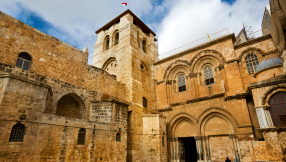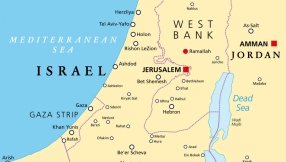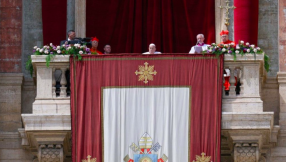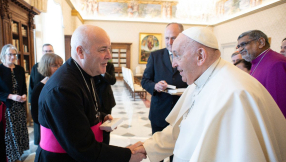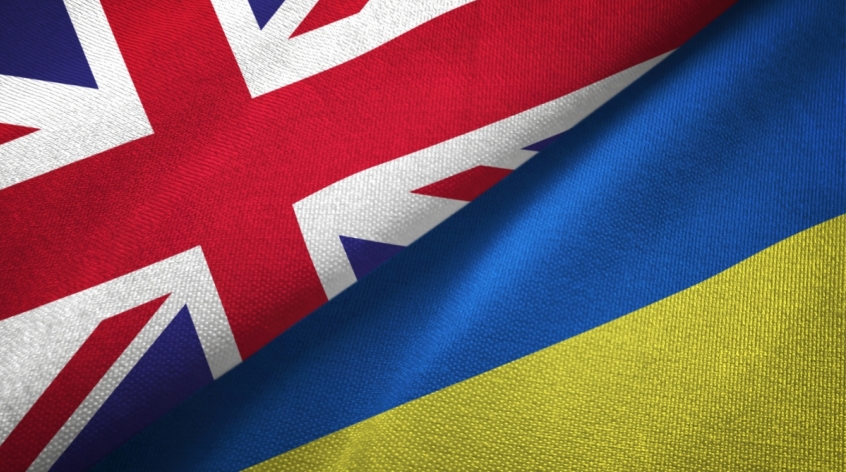
People thinking about welcoming a Ukrainian refugee into their homes are being urged to think through the practical implications before signing up.
Over 100,000 Brits have already expressed their interest in becoming a host since the government website went live earlier this week.
Applications to be a sponsor can be made on the government portal from Friday, and the first refugees coming through the new humanitarian route are expected to arrive in the UK next week.
TV presenter and Christian, Simon Thomas, who plans to become a sponsor with his wife and 12-year-old son, said it was important to have conversations with the whole family to make sure it is right for everyone.
Speaking at an event hosted by the Sanctuary Foundation on Wednesday, he also urged people to think through the practical implications like the financial cost, space in the home, and the impact on family life.
"This is a real game changer in terms of home life [and] you have to think through what this doesn't just look like on that first day you meet them, which will undoubtedly be emotional ... but what does it look like in a week's time? A month's time? Six months and perhaps beyond?" he said.
"There's nothing wrong in asking those questions. It doesn't mean you don't care, it doesn't mean you're heartless. It's just about saying: can we do this? Because these people are doing something they have never, ever wanted to do. They can't even begin to imagine that this is now their reality, that they are trying to find somewhere to stay and be sheltered in a foreign land.
"They're going to be incredibly traumatised but what's this going to look like in terms of how daily life works? How do we go about integrating them into family life? They're going to become part of your family life and that's a huge change. I'm not trying to put people off but do, please think it through."
Event host Krish Kandiah agreed, saying, "This isn't just going to affect you, it's going to affect every single member of your family and maybe even your neighbours too."
Russell Rook, part of the Good Faith Partnership and an adviser to the government on welcoming refugees, encouraged potential hosts to connect with charities that can provide support and training.
"Some of us have never re-settled a refugee, or had a refugee in our home, or worked on a refugee project, but there are lots of organisations that can help you to do it," he said.
"We would encourage you to get training, to get support, read up, get as much information as you can, and get some charities and support around you so that you can deliver this safely for your sake as well as for those coming in."
For those who are not in a position to take a refugee into their home, he encouraged them to find ways to support sponsors.
"Just as we say 'it takes a village to raise a child', in the same way it takes a community to welcome a refugee. It's not a solo business, it's not a solo show. It's a team job," he said.
Einir Cooper, of Upbeat Communities, an organisation helping refugees settle into life in the UK, said it was important that hosts are prepared for what the role will entail.
"We are here tonight because we are compassionate and we want to make a difference and we want to put our compassion into action. However there is a reality to what we're offering and we don't want anybody to go in with their eyes closed. We want people to be realistic," she said.
"Six months is a long time to host a family who is in trauma [and it's] not about 'poor refugees'.
"These are families that were more than capable of running their own lives up until a month ago, so we want to be empowering them to start again in the UK and if we can do that within a structured and supportive environment then their life is going to be that much easier."










